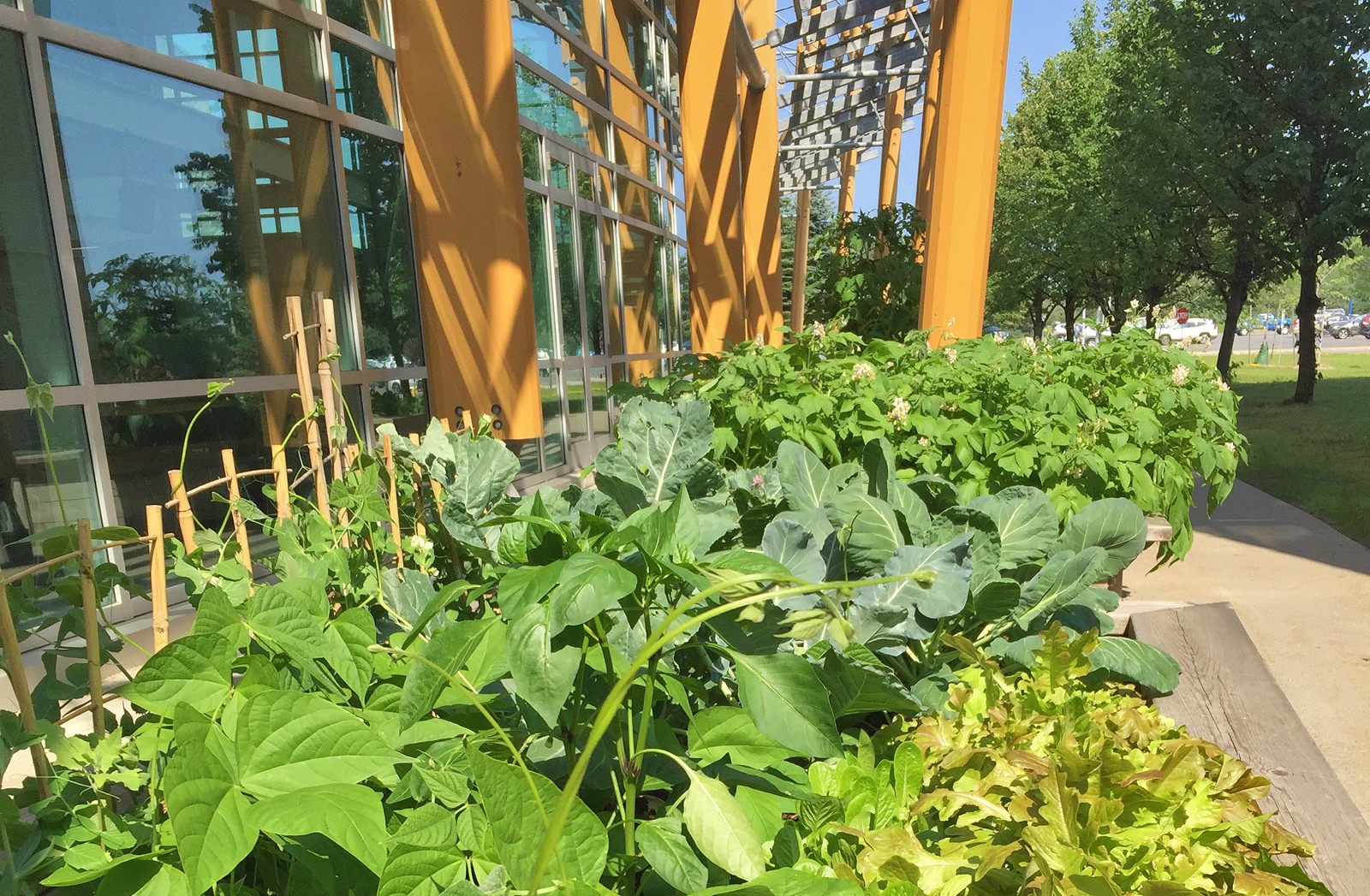Family CARE Grant Helps Cooking Program for Better Mental Health
Published Monday, September 21, 2020

Patients in the Adult Mental Health program learn new skills such as cooking and gardening to improve nutrition as well as self-esteem. A Family CARE Grant recently helped the program purchase much-needed kitchen equipment.
by Graham Strong
Doctors know that diet can directly affect mental health. Eating nutritious meals including fresh vegetables and fruits can reduce the risk of depression and other mental health challenges. But the benefits don’t end at healthy eating. Planning and preparing your own meals also improves self-esteem, social connection, and budget. Food preparation can even provide career opportunities.
The problem is, many people lack basic cooking skills.
“I was surprised at how many people don’t know how to cook,” said Donna Ross, a Therapeutic Recreationist at the Thunder Bay Regional Health Sciences Centre’s Adult Mental Health (AMH) program. Thanks to a Volunteer Association and Thunder Bay Regional Health Sciences Foundation Family CARE Grant, donors like you are helping the AMH program at our Hospital teach these skills.
“Whenever I do a cooking program, I talk about nutrition, food costs, and how to be creative with recipes,” Ross said. “I’ll also talk about how much money they’re spending on take-out food compared to preparing it themselves.”
The snowball effect of this lifestyle change on mental health can be incredible. Joelle Macey, AMH Acting Manager, talked about one patient who got excited about learning how to make cabbage rolls. “Her family went out and bought all the ingredients so that when she got discharged, she could start cooking at home,” Macey said.
Ross added that sharing her cabbage rolls with other people in the program boosted her confidence. Adding pickle to the cabbage rolls was a creative touch that everyone loved.
“She got all that praise from about 15 people coming up to her and asking, ‘Wow, you made those? They were great!’” Ross said.
Ross also incorporates gardening into the program, showing patients how they can grow their own fresh vegetables. Learning how to cook also helps teach creativity, time management, and budgeting, getting people to focus beyond one meal at a time.
“I’ll talk about something like quinoa. It may cost this much, but these are how many meals you can get out of it,” Ross said.
The program is also another way to encourage patients to discuss what’s on their minds. Kitchens through the ages have been places where people gather and share stories as they prepare meals. The AMH kitchen is no different.
“Whenever you create an atmosphere that’s more relaxed, people feel more comfortable to open up,” Ross said. “The conversations get very real in that kitchen.”
Mental health slides along a spectrum, Ross said. Learning new skills like cooking can help slide a patient’s mental health up and even spark excitement. “Often they discover a passion that they didn’t know they have,” Ross said.
The Family CARE Grant helped the program purchase a number of items including a new stove, sink, and dishwasher. The goal is to create a typical kitchen environment so patients can more easily transfer their skills to their own kitchens. You can help! Family CARE (Care Advancements Recommended by Employees) Grants provide funding for frontline staff to make big changes to patient care. Please call the Donation Centre at (807) 345-4673 or visit healthsciencesfoundation.ca/donate to support more Family CARE Grant projects like this one. Thank you!